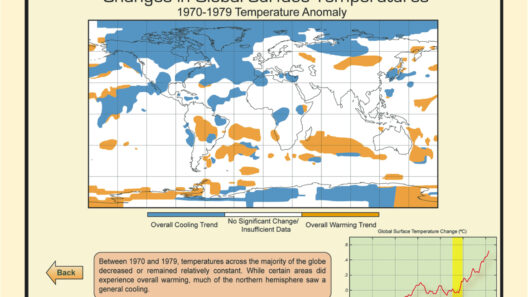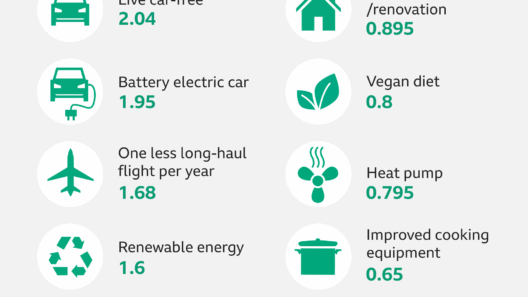Global warming is a pressing concern that has profound implications on our planet, its ecosystems, and human life. As temperatures rise, the urgency to address this phenomenon intensifies. This article delineates practical approaches to prevent, reduce, and ultimately fix global warming. It explores technological innovations, lifestyle changes, and renewable energy solutions, emphasizing the shared responsibility of individuals, businesses, and governments in this critical endeavor.
Considerations must be made on how we are contributing to global warming. The combustion of fossil fuels releases copious amounts of carbon dioxide (CO2), exacerbating greenhouse gas emissions. Thus, prompt and robust action is necessary to curtail further damage and work towards a cooler future.
Transitioning to Renewable Energy: A Sustainable Power Shift
One of the most efficacious methods to combat global warming is the transition from fossil fuels to renewable energy sources, such as solar, wind, and hydroelectric power. These alternatives generate substantially less greenhouse gas emissions and can significantly reduce reliance on carbon-intensive energy systems.
Solar energy stands out as a versatile option, harnessing the sun’s immense power through photovoltaic cells. With decreasing costs and increasing efficiency, solar panels are becoming accessible even to residential consumers. On a larger scale, solar farms have been successfully implemented, providing substantial energy to local grids and significantly lowering carbon footprints.
Wind energy is another pivotal player in the renewable sector. Turbines can be erected in windy regions, converting kinetic energy into electrical power without producing harmful emissions. The integration of offshore wind farms is a growing trend, offering substantial advantages in energy output while minimizing land-use conflicts.
Equally important is hydropower, which utilises flowing water to generate electricity. However, it is crucial to address the ecological implications of damming rivers and altering habitats. While hydropower is a crucial player, careful planning is necessary to ensure sustainability.
Shift towards Energy Efficiency: The Power of Conservation
Beyond sourcing energy sustainably, enhancing energy efficiency in homes, industries, and transportation systems is essential. Simple changes, like upgrading to energy-efficient appliances, employing smart thermostats, and utilizing LED lighting, can drastically reduce energy consumption.
An equally impactful concern is the efficiency of our buildings. Insulating homes and offices effectively can decrease heating and cooling demands, leading to lower energy consumption. Green building practices incorporate sustainable materials and innovative designs, contributing to reduced carbon footprints.
Moreover, industries can optimise their processes to limit energy waste. By adopting best practices in technology and resource management, companies can lower operational costs and carbon emissions simultaneously. Emerging sectors focused on circular economy principles encourage minimizing waste and maximising resource reuse, further mitigating climate impact.
Mobility and Transportation: Greening Our Movement
The transportation sector represents a significant contributor to greenhouse gas emissions. Transitioning to electric vehicles (EVs) and investing in public transport systems can ease the burden that traditional vehicles impose on the environment. EVs produce no tailpipe emissions, reducing urban pollution and aiding in efforts to decrease carbon dioxide levels.
Advancements in battery technology are rapidly improving the range and affordability of EVs, making them a viable option for an increasing number of consumers. Additionally, the development of comprehensive charging infrastructure will facilitate a smoother transition to electric mobility.
Public transportation plays a crucial role in reducing the environmental impact of commuting. Cities that invest in reliable and efficient transit systems enable residents to opt for greener alternatives. Furthermore, encouraging carpooling, biking, and walking can contribute to this shift towards more sustainable transportation methods.
Individual Responsibility: Small Changes Lead to Big Impact
While systemic change is imperative, individual actions are also vital. Every person can play a role in combating climate change through mindful consumption and behavioral changes. Reducing reliance on single-use plastics, opting for a plant-based diet, and minimizing food waste can collectively have a staggering impact on our carbon footprint.
Moreover, advocating for local and sustainable products can bolster community economies and lessen transportation emissions associated with imported goods. Education is paramount; informing oneself and others about climate-related issues will build a more conscious society that values sustainability.
The Role of Legislation: Enforcing Change
Government action is critical to establishing and supporting initiatives that address global warming. Effective legislation can impose stricter emissions standards, offer tax incentives for adopting clean technologies, and fund research into sustainable practices. Internationally, agreements like the Paris Climate Accord aim to unite countries in the fight against climate change.
Active participation in policy advocacy can ensure that environmental concerns are prioritized in legislative processes. Engaging with community leaders, businesses, and non-profit organizations can amplify voices demanding accountability from those in power.
The Future of Our Planet: Hope for Tomorrow
The path towards a cooler future requires collective effort, innovative solutions, and unwavering commitment. By addressing key concerns related to energy production, consumption, transportation, and individual responsibility, we can pave the way for a sustainable existence. The fight against global warming is not just about safeguarding the planet; it is also about securing a viable future for generations to come. If we act decisively today, the thought of a cooler, healthier Earth is not merely an aspiration but an attainable reality.







